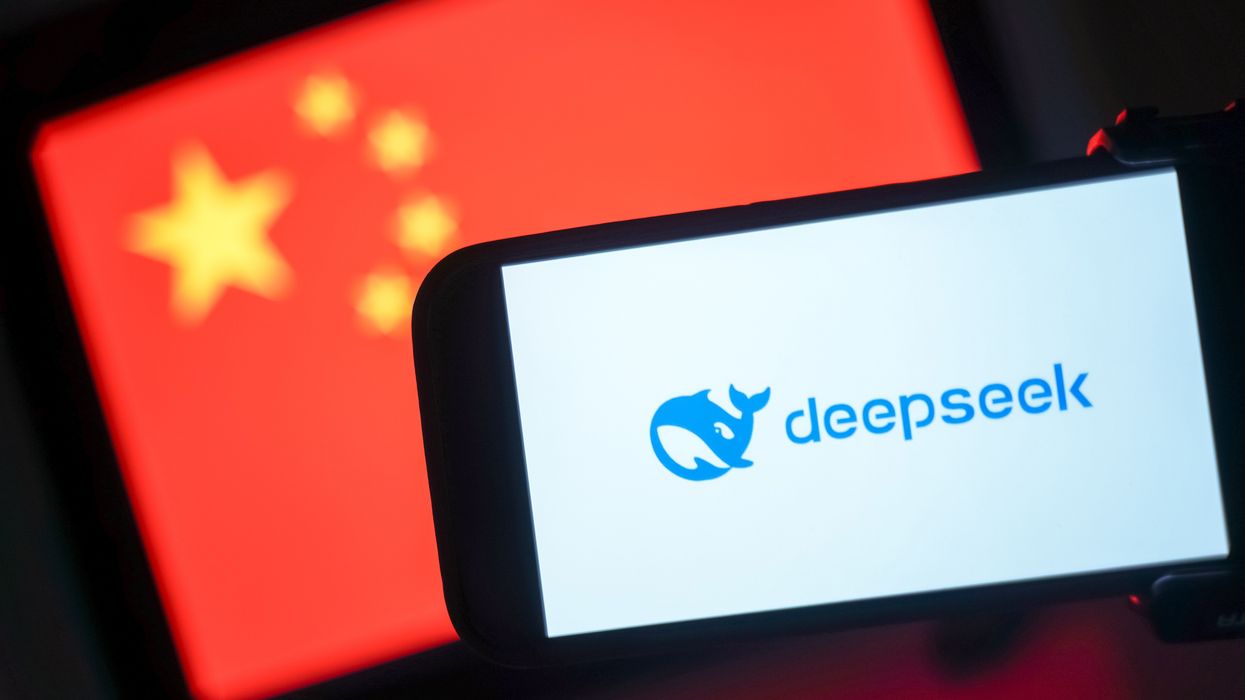US CHIP-MAKER Nvidia led a sell-off in tech stocks on Monday after the emergence of a low-cost Chinese AI model raised concerns about the competitiveness of US firms in the generative AI industry.
DeepSeek, a startup based in Hangzhou, China, launched its chatbot, which reportedly matches the capacity of US AI leaders but was developed for just £4.5 million. The chatbot quickly became the top-rated free app on Apple’s US App Store, surpassing OpenAI’s ChatGPT.
Shares in Nvidia, whose semiconductors are integral to AI development, plunged 17 per cent, wiping £483 billion off its market value. The Nasdaq index dropped more than 3 per cent, while other major players in the tech sector, including Broadcom and ASML, also recorded significant losses.
Kathleen Brooks, research director at XTB, highlighted the broader implications, stating, "The focus is now on whether China can do it better, quicker, and more cost-effectively than the US, and if they could win the AI race."
DeepSeek’s success has prompted mixed reactions from industry leaders.
OpenAI CEO Sam Altman described the development as “invigorating” and noted that DeepSeek’s R1 model was “impressive, particularly given its price.”
Microsoft CEO Satya Nadella called the advancement positive for the industry but urged caution over privacy concerns.
US president Donald Trump reacted swiftly, describing the launch as a “wake-up call” for US companies to focus on efficient innovation.
He added that such competition could reduce costs while maintaining quality.
DeepSeek, however, faced backlash, with accusations from Elon Musk and others that it may have accessed restricted Nvidia chips.
Nvidia denied these claims, stating the company was compliant with export regulations.
The impact of DeepSeek’s emergence extends beyond the US, with global markets reacting.
European stock indices, including Frankfurt and Paris, fell, while Asian markets also experienced declines.
Key updates on the development:- Nvidia’s stock drop: Nvidia shares fell by 17 per cent, erasing £483 billion of its market value, as a low-cost Chinese AI model by DeepSeek emerged as a competitor.
- Chinese AI model: DeepSeek's chatbot, developed for £4.5 million, challenges the US dominance in generative AI.
- Global stock impact: Major tech firms like Broadcom and ASML also saw significant stock drops; the Nasdaq fell over 3 per cent.
- US and China AI race: The launch of DeepSeek’s model raises questions about cost efficiency and competition in the AI industry.
- Trump’s reaction: US president Donald Trump called DeepSeek’s advancement a "wake-up call" for Silicon Valley to innovate more efficiently.




